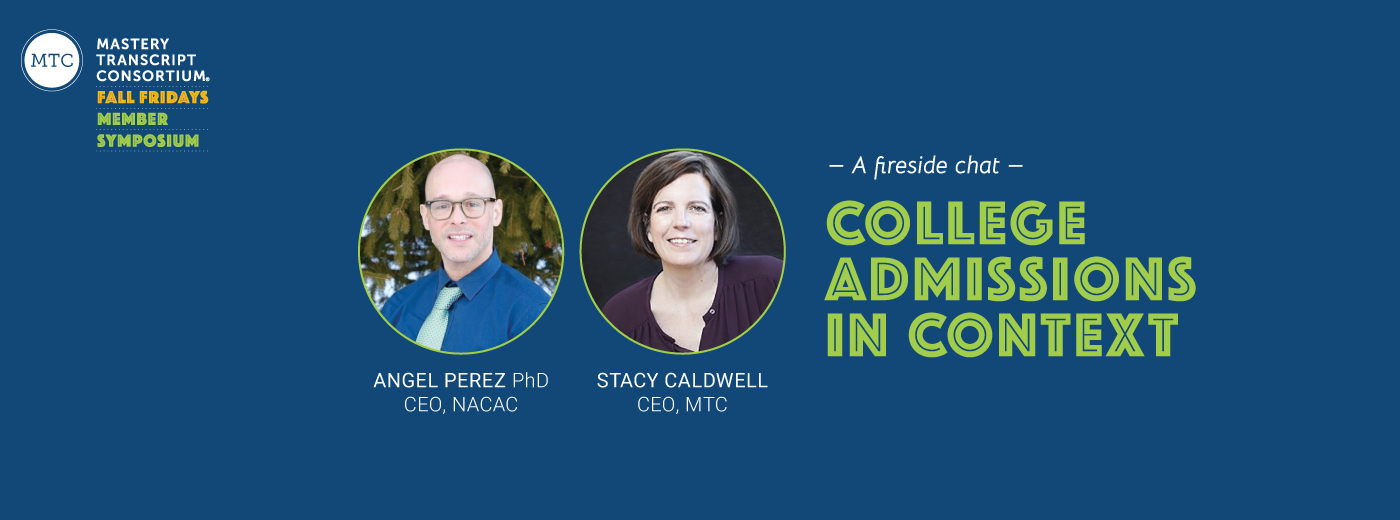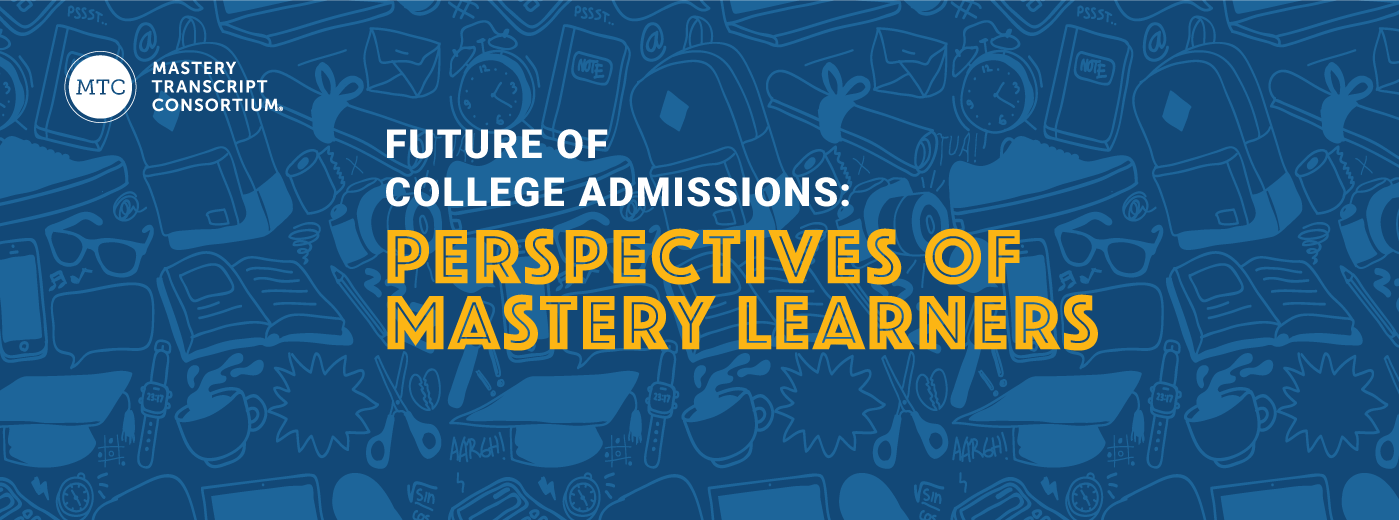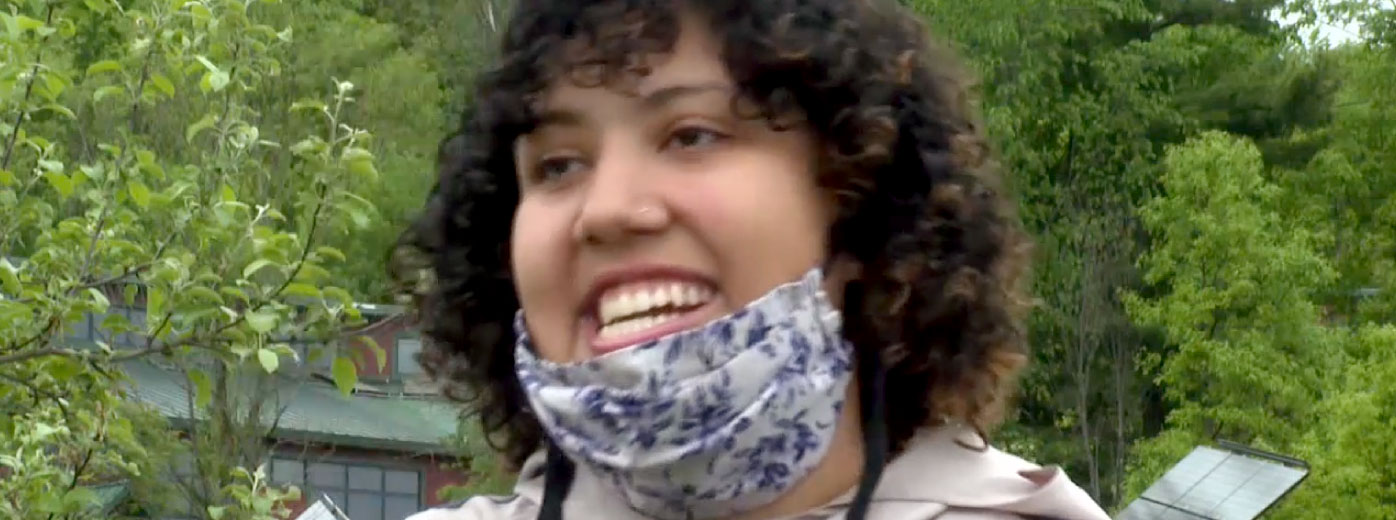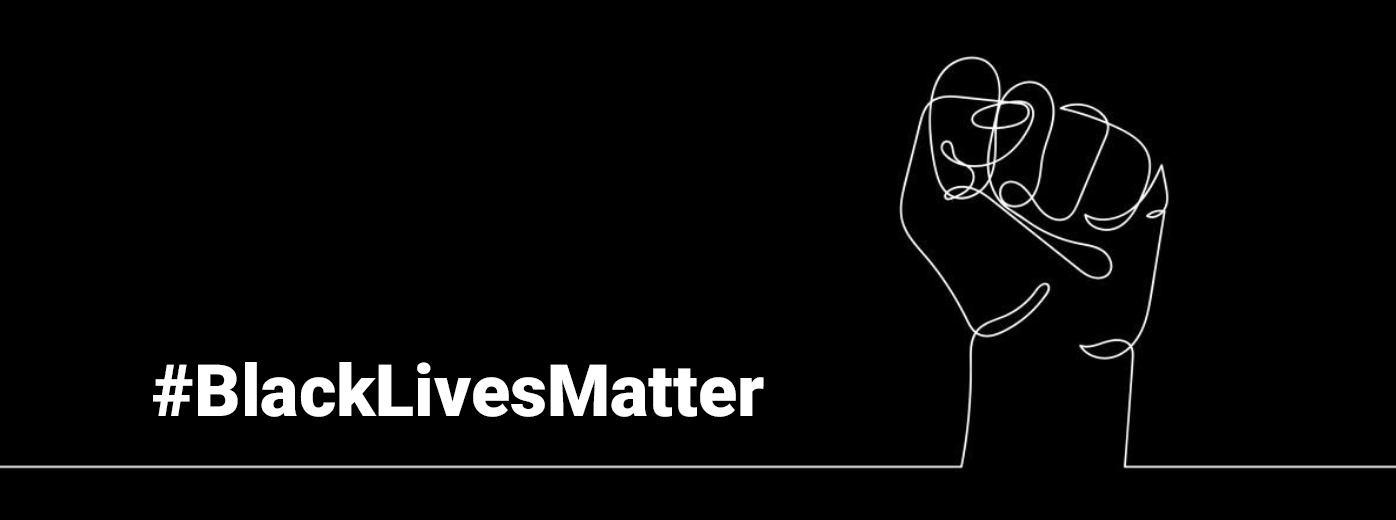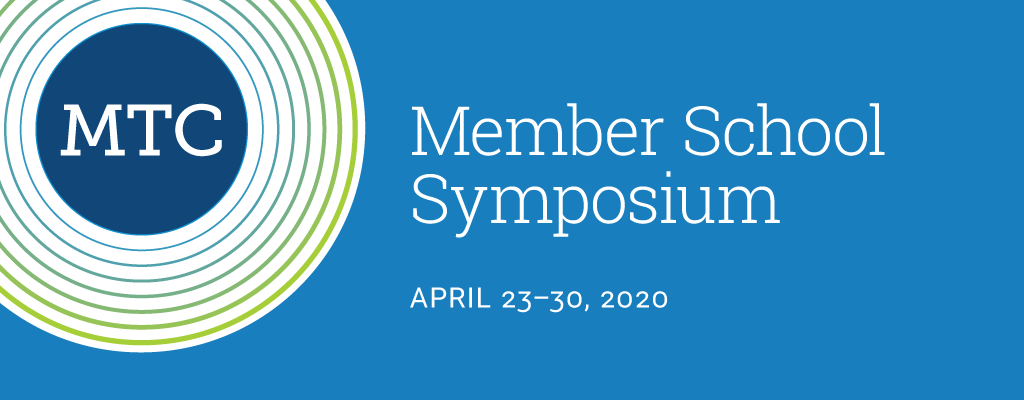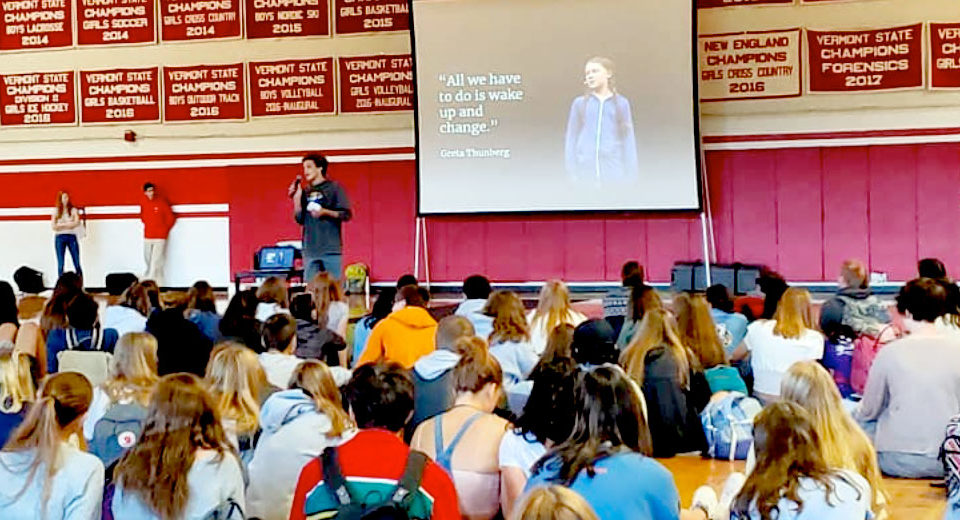MTC Insights
Already a member? Log in to the Member Site at members.mastery.org.
September 29, 2020
MTC Webinar on October 2, featuring Angel Pérez, CEO of NACAC, is open to the public.
September 18, 2020
Student panelists to share their experiences with mastery learning and how it has prepared them for college, career, and life.
September 2, 2020
Mastery Transcript Consortium®, the network of member high schools who are together introducing a new digital high school transcript based on mastery learning, today announced the launch of the full Mastery Transcript® version 1.0.
August 24, 2020
Greg Curtis participated in MTC's spring Online Member Symposium, delivering two sessions on assessment, designing qualitative learning goals, and reframing the learning environment. The following is the second in his related "MTC Insights: Assessment” series.
August 19, 2020
Rising senior at Winooski High School, Evelyn Monje, shares her experience with mastery learning, her excitement about using the Mastery Transcript this year as she applies to college, and a range of work she does in and out of school.
July 10, 2020
As the academic year gets into full swing, there are several key initiatives that MTC is advancing with its network of nearly 300 member schools. In particular, this is the...
July 1, 2020
Amid a backdrop of historical events, there was a particularly significant milestone for MTC and its theory of change. The first students applied to college using the Mastery Transcript.
June 30, 2020
Across high schools and colleges, there is near universal agreement that the current college admissions process, though well-intentioned, has only become more inequitable and even harmful for today’s high school applicants.
June 28, 2020
Greg Curtis participated in MTC's spring Online Member Symposium, delivering two sessions on assessment, designing qualitative learning goals, and reframing the learning environment. The following is the second in his related "MTC Insights: Assessment” series.
June 11, 2020
This article and the deeper paper is a culmination of the five Mastery Learning case studies MTC recently published highlighting the incredible work of five of our member schools as they made the journey to mastery learning.
June 5, 2020
We stand in solidarity with the Black Lives Matter movement, protestors, and all of those speaking out, acting, and creating policies to upend racial inequities and injustice.
May 14, 2020
For thousands of high schoolers throughout the country, the current uncertainty about the role of grades is exacerbating anxiety and accentuating inequitable learning environments. Many students feel undue pressure, including juniors as they prepare for college applications in 2020-2021 and others as they plan ahead to life after high school.
May 12, 2020
MTC offers 10 insights, drawing upon lessons from our member schools and best practices from the field of mastery learning, to help parents endure the task of schooling at home as they can--and to see learning and their own learners/children in the best light.
May 12, 2020
“MTC, more than any other organization that we’ve come across, exists in the sweet spot of our two areas of policy focus,” said Sean Sloane, senior policy analyst at the Council of State Government (CSG).
May 11, 2020
Recently our CEO, Stacy Caldwell, participated in Redesigning School's podcast series--and shared good news about how colleges have responded to the Mastery Transcript and how it meets the moment.
May 7, 2020
In April Greg Curtis participated in MTC's Online Member Symposium, delivering two sessions on assessment and reimagining the learning environment. The following post addresses the role of assessment and curriculum change in moving toward mastery-based school transformation.
April 22, 2020
MTC is offering two public webinars as part of its weeklong MTC Online Member Symposium. Both are free and open to the public, given broad interest in the discussion topics: "Progress and Promise: MTC and Higher Education” (Thursday, April 23 at 11 a.m. EDT) and “Mastery Transcript: Product Roadmap for Fall 2020" (Friday, April 24, 10 a.m. EDT).
April 8, 2020
Policymakers and school/district leaders are looking for expert guidance on whether, and how, to grade students during this very unique time. Along with Challenge Success and Crescendo Education Group. MTC offers our recommendation, and invites members of the public to join a webinar with panelists on April 14, 11 a.m. PST/2 p.m. EDT for more details and an in-depth discussion.
April 1, 2020
Well before government officials began closing schools to slow COVID-19’s impact on our healthcare systems and communities, there were compelling reasons to rethink what “academic excellence” actually means. At this moment and in our current context, this definition is being wholly redefined.
February 11, 2020
Recently we sat down with Kedra Ishop, PhD, the vice provost for enrollment management at University of Michigan and a member of MTC’s Higher Ed Advisory Group, to discuss the evolution of education, assessment, and the student transcript in the 21st century. Ishop’s vision for the future is rooted in a deep commitment to progress, particularly for the benefit of young people.
December 27, 2019
We continue our series of case studies with the stories of two more MTC member schools: Champlain Valley Union High School in Vermont and Pathways High School in Wisconsin. Both are public high schools who are engaging their students in learning experiences deeply rooted in research on learning. What is a common road block for school change?
December 27, 2019
MTC’s expertly illustrated series of case studies, prepared by Chris Sturgis, are key resources for member schools. We launch with two member schools, Northern Cass School District 97 in North Dakota and Tilton School in New Hampshire, whose journeys follow similar paths, but…
December 9, 2019
MTC is pleased to introduce the publication, “The Journey towards Mastery Learning: The Steps and Stages to Mastery Credits and the Mastery Transcript,” coauthored by mastery learning experts Chris Sturgis and Katherine Casey, along with MTC’s Senior Director of Member Engagement Susan Bell. This is the second in a series of publications MTC is producing (“MTC Works”) during 2019-2020, following on the earlier theory of action paper, “Getting Our Signals Straight for Students.” The goal of “The Journey towards Mastery Learning” is to provide MTC member schools–and others who are thinking about joining the MTC movement–with a framework for reimagining high school and transitioning to mastery learning … and ultimately the MTC Mastery Transcript. Read on for more.
December 1, 2019
In partnership with Chris Sturgis and her coauthor Katherine Casey, MTC is developing a series of publications for members and schools considering membership. The first volume is our theory of action paper, “Getting Our Signals Straight for Students.”
Read More


